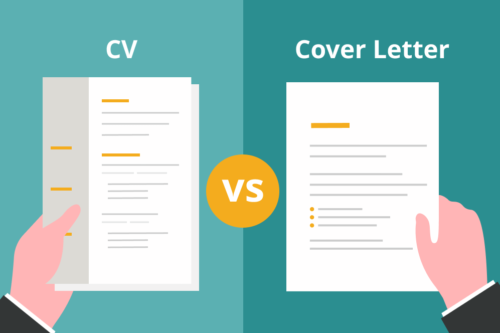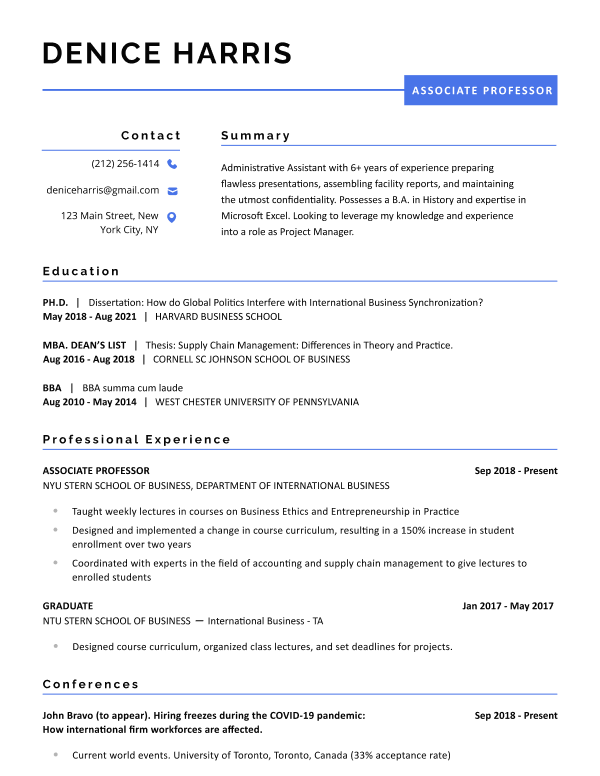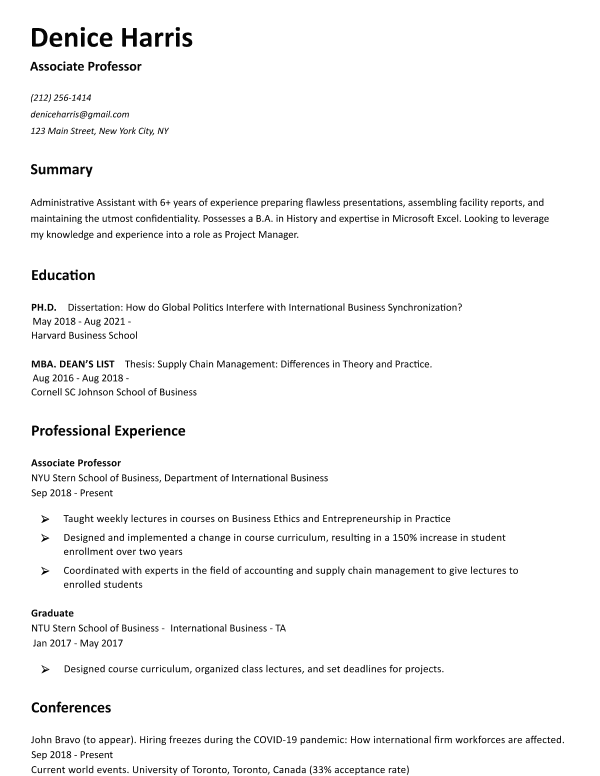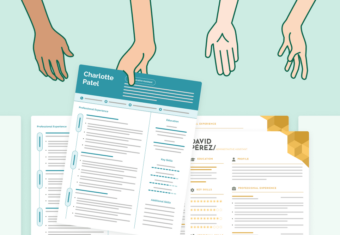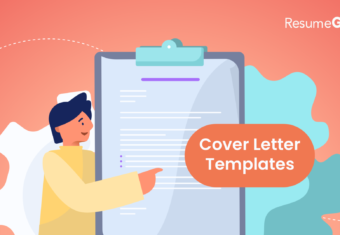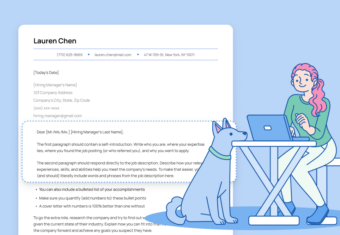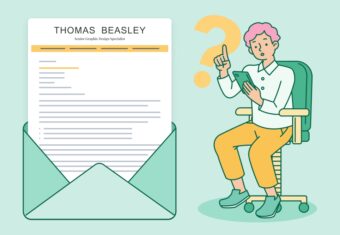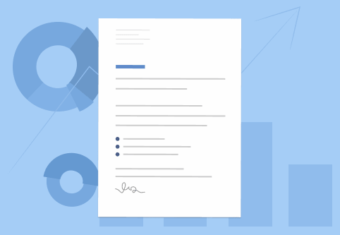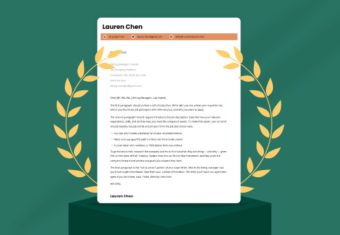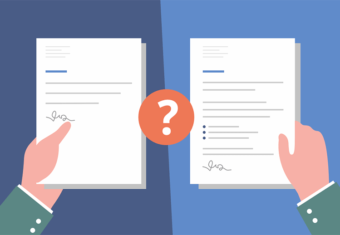What’s the difference between a CV and a cover letter?
The differences between a CV and cover letter are their purpose, length, content, and format.
Although there are several differences, a CV and cover letter are also similar because they’re both essential documents that recruiters use to decide whether you’re the right person for the job.
Learn about the key differences between a CV and cover letter and how to write the two documents.
Our free-to-use cv builder can make you a cv in as little as 5 minutes. Just pick the template you want, and our software will format everything for you.
Is a CV a cover letter?
No, a CV is not a cover letter. CV is short for “curriculum vitae”.
In the United States, a CV is a multipage document used by people applying for academic or medical positions.
By contrast, a cover letter is a one page letter that explains who you are, why you want the job, and how you’ll contribute to the position you’re applying to.
What is a CV outside of the United States? In Europe, a CV is the standard application document for job searchers, similar to an American resume.
What is the difference between a CV and a cover letter?
The difference between a CV and a cover letter is that they each have separate purposes.
Therefore, your cover letter and CV will also have different:
- lengths
- content
- formats
1. Purpose
Have a look below at the differences between a CV and a cover letter’s purpose:
Purpose of a CV
A CV’s purpose is to provide the recruiter with an overview of your skills, experience, and educational background.
A CV should summarize your entire career. In a standard CV, the first page lists your publications, research, and education before moving onto other common CV sections.
Not sure when to use a CV or resume? Use a CV if you’re applying for a role in academia, otherwise, submit a resume.
Purpose of a cover letter
By contrast, the purpose of a cover letter is to highlight your communication skills and introduce you as a suitable candidate for the role.
The beginning of the cover letter should also cover your professional background — but in a more communicative tone.
Then, the rest of the letter gives you space to talk about yourself, your ambitions, and why you’re the perfect person for the job.
2. Length
Here are the differences between the length of a CV and cover letter:
Length of a CV
The length of a CV depends on the job you’re applying for. For example, job seeking CVs for tech and engineering roles are usually one page long.
However, If you’re looking for a job in academia, your CV could be as long as five pages. Your CV length should successfully showcase the relevant hard and soft skills and experience for the job you’re applying for.
Length of a cover letter
On the other hand, the length of a cover letter is always one page.
Avoid making your cover letter longer than a page, as recruiters receive many job applications for each position and will reject letters that are lengthy and take up too much of their time.
3. Content
Your CV and cover letter discuss your work history, but the way you present the content is different.
Let’s take a look at the content differences between a curriculum vitae vs a cover letter:
Content to include in a CV
To write a CV, you need detailed content. Here’s what to include in a CV:
- CV header (with your contact details)
- CV objective or CV summary
- Research experience section
- Work experience section
- Education section
- Relevant accomplishments
- Hard and soft skills
- Publications
- Awards and honors
- Grants and fellowships
- Conferences you attended or contributed to
- Teaching experience
- Volunteer experience section
- Language skills
- CV references
- Additional skills section
Interested in learning more about what to put in a CV? Check out our video guide below to learn the basics of creating an excellent academic CV:
Content to include in a cover letter
Here’s how to write a cover letter and what to include in it:
- Cover letter header (with your contact details)
- Cover letter salutation
- Opening paragraphs
- Body paragraph(s)
- Cover letter sign off
4. Format
These are the differences between the format of a CV and cover letter:
Format of a CV
Your content should be visually clear with easy-to-read text.
Proper CV formatting makes it easy for the recruiter to find any information they wish to refer back to. So use a simple, attractive CV template and appropriate CV font that is readable and leads your reader logically through each CV section.
A CV will also have more lists and bullet points compared to a cover letter.
Format of a cover letter
Your cover letter format can be put together by using a word processor with a professional cover letter font or by using a cover letter template.
And instead of shortened lists, a standard cover letter uses sentences and paragraphs throughout the page to describe your experience.
Cover letter vs CV: what’s similar?
Despite the differences, there are also several key similarities between the two documents. A cover letter and a CV both:
- tell the recruiter specific details about your accomplishments and experience
- use action verbs and job-related keywords throughout
- include accurate and relevant information that will pass a background check
- are complimentary, as each gives more detail about the other
For instance, a cover letter introduces you while your CV provides more relevant details. Equally, your CV might list the details of your previous role, but your cover letter tells the story of how that experience shaped your career.
Click to rate this article
4.6 Average rating


